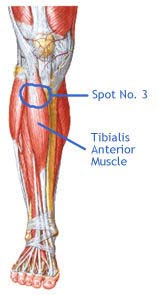The phrase "Trust your Gut" doesn't always apply, especially when it comes to weight loss. This is because a prevalent yet often overlooked condition known as Gut Dysbiosis can significantly hinder weight loss efforts. This imbalance in the gut's microbial environment can lead to improper digestion, cravings for unhealthy foods, and ultimately, prevent effective weight management. It's truly remarkable how such a widespread issue often goes unnoticed, considering its potential long-term health implications.
Understanding Gut Dysbiosis
The term "Gut Dysbiosis" itself might sound unfamiliar, adding to the mystery surrounding the condition. "Dysbiosis" refers to an imbalance in the microbial ecosystem of the gastrointestinal (GI) tract. This complex environment hosts trillions of bacteria, fungi, and other microorganisms collectively known as the gut microbiota or flora. This intricate community plays a crucial role in various bodily functions, including digestion, nutrient absorption, waste elimination, immune system regulation, and even mental health. The gut flora assists the body in producing and absorbing essential nutrients while simultaneously breaking down toxins and facilitating waste removal. Disruptions to this delicate balance can have far-reaching consequences.
The Impact of Flora Imbalances
Dramatic shifts in the gut flora can trigger dysbiosis. These shifts can be caused by a multitude of factors, including the use of certain medications, particularly pain relievers, antibiotics, and antacids, infections, chronic illnesses, excessive alcohol consumption, persistent stress, dietary choices, exposure to environmental chemicals, and pollutants. When these imbalances occur, Gut Dysbiosis can manifest in various gastrointestinal problems, such as acid reflux, excessive gas, bloating, and indigestion. These symptoms can significantly impact an individual's quality of life and overall well-being. Furthermore, incomplete or improper digestion can lead to nutrient deficiencies, triggering the body to signal for more food, creating a vicious cycle of overeating and further digestive issues. This can result in weight gain, even if one is consciously trying to eat healthily, as the body struggles to extract the necessary nutrients from food.
Gut Dysbiosis and Food Intolerances
Gut Dysbiosis can also contribute to the development of food intolerances or sensitivities. It's important to differentiate these from food allergies, which involve an IgE-mediated immune response that can cause severe reactions like anaphylaxis. Food sensitivities and intolerances, on the other hand, involve different immune pathways or non-immune mechanisms, often related to improper digestion, damage to the gut lining, or enzyme deficiencies.
Food sensitivities can manifest in a wide range of symptoms, including nasal congestion, energy fluctuations, mood swings, joint pain, digestive discomfort, and headaches. These varied symptoms can make it challenging to pinpoint the underlying cause without proper testing. The body may begin to crave the very foods it is reacting to due to complex biochemical processes involving neurotransmitters like serotonin and the release of endorphins and cortisol. This can create a challenging cycle of cravings and adverse reactions.
The Biochemical Mechanisms of Food Cravings
When someone consumes a food they are sensitive to, a cascade of biochemical changes occurs within the body. These changes can involve imbalances in neurotransmitters, particularly serotonin, which can lead to cravings not only for the offending food but also for carbohydrate-rich and sugary foods. Additionally, the body may release endorphins as a temporary response to the consumption of reactive foods.
This can create a misleading sense of well-being, which the body may then seek to replicate by craving more of the same food. Furthermore, the consumption of reactive foods can trigger the release of cortisol, a stress hormone, which can further contribute to cravings and a feeling of needing a "pick-me-up." This complex interplay of biochemical factors can make it difficult to break free from the cycle of food sensitivities and cravings. This can lead to weight gain because the body is not properly digesting nutrients and is craving unhealthy foods. Addressing gut dysbiosis can reduce bloating and inflammation, potentially leading to a reduction in waist circumference.
Recovering from Gut Dysbiosis
Effectively addressing Gut Dysbiosis requires a three-pronged approach: identifying the root cause, eliminating the trigger, and repairing the damage to the gut. Several methods can be employed to identify the cause of dysbiosis. One approach involves an elimination diet, where common trigger foods are removed and then reintroduced one by one to observe any reactions. Another option is specialized blood testing, which can identify specific food sensitivities or intolerances more efficiently. Once the culprits are identified, the repair process can begin. This typically involves dietary modifications to eliminate the offending foods and support gut healing through supplementation with probiotics, prebiotics, and other gut-supportive nutrients.
Over time, this approach can help rebuild a healthy gut flora and gradually reintroduce certain foods into the diet under careful guidance. It's crucial to remember that reactions to food can occur hours or even days after consumption, making it difficult to identify triggers without testing or a structured elimination diet. Consulting with a healthcare professional specializing in gut health can provide personalized guidance and support throughout the recovery process.
The information provided in this article is intended for general knowledge and informational purposes only, and does not constitute medical advice. It is essential to consult with a qualified healthcare professional for any health concerns or before making any decisions related to your health or treatment. The content is based on current scientific understanding and may evolve as new research emerges. Individual results may vary.
1 Oler, C. (Personal Communication).
2 Data on file, Natural Path Health Center.
This article is editorial in nature and does not constitute medical advice. Always consult a physician for any health-related concerns, whether psychological or physical.













